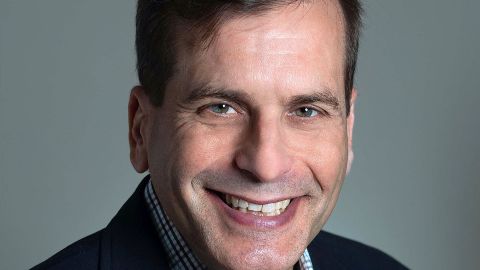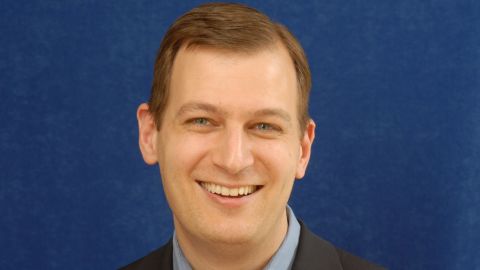[ad_1]
Editor’s Note: Evan Mandery is a professor at John Jay College of Criminal Justice and the author of “Poison Ivy: How Elite Colleges Divide Us.” Michael Dannenberg is a Senior Fellow with non-profit College Promise campaign and former senior aide in the U.S. Department of Education during President Barack Obama’s administration. The views expressed here are those of the authors. Read more opinion on CNN.
CNN
—
This month, Ivy League and other “elite” colleges are sending offers of admission to successful students who applied through non-binding “early action” or through “early decision,” by which students pledge to attend a prospective school if accepted.


The joy that these disproportionately White and overwhelmingly affluent families will share across social media will mask the less visible suffering of students who didn’t participate in the process, either because they didn’t know about it or couldn’t afford to. Other admission practices, such as the legacy preference for children of alumni, may more openly stack the deck in favor of the wealthy, but none is as pervasive as the opaque early decision system, through which elite colleges fill as much as two-thirds of their classes.
It wasn’t always this way. As late as 1983, Harvard admitted only about a quarter of its class early. By contrast, an astonishing 68% of Harvard’s Class of 2025 got into Harvard or another college early. What changed?
For one thing, until 2003, the U.S. News & World Report rankings placed great weight on what’s known in the higher ed business as “yield” – the percentage of admitted students who actually enroll. Yield has no intrinsic educational value, but elite colleges are nothing if not competitive – and so they set out to increase their rate. That meant more emphasis on accurately predicting how likely each applicant was to enroll if admitted.
More significantly, colleges began to realize they could limit demands on their financial aid budgets by attracting and locking in high-wealth students for whom college cost is a small consideration in deciding where to matriculate. In fact, according to a review of Common Data Set reports submitted by institutions of higher education, students from the wealthiest zip codes are twice as likely to apply early decision. International students are three times as likely to apply early decision. Those who attend private schools are three-and-a-half times as likely to apply early as their public school counterparts.
In-the-know families understand the single best thing an applicant can do to boost their chance of getting into an elite college – aside from being a recruited athlete or the child of a faculty member, donor or graduate of that college – is to apply early. Colleges making use of early decision effectively confer a preference to those applicants worth the equivalent of 100 extra points on the SAT, according to leading researchers
The problem is that this information isn’t widely known. Harvard professor Christopher Avery likens the process to a game of blackjack on Mars, in which the players don’t know the rules of the game, and the colleges – the casinos in this metaphor – don’t make them known. The only repeat players with adequate incentive to learn the nuances of the system are professional college advisers, but they’re a luxury few socioeconomically disadvantaged students can afford. And almost none of those applicants can pledge to attend a college without seeing their financial aid package in advance, as early decision requires them to do.
As a result, early admissions remains the province of the privileged.
These effects have been well known for at least 20 years, since Avery and his colleagues published research showing a strong bias from early admissions in favor of the wealthy. Yet no elite college seems willing to risk surrendering even an inch in their competition for status.
In 2001, then-Yale president Richard Levin said that early admissions discriminated against less affluent students, but Yale couldn’t end them on their own lest they “be seriously disadvantaged relative to other schools.” In 2006, then-Harvard president Derek Bok announced that Harvard would stop letting students in early. Just five years later, the college reversed course, ironically citing diversity as the motivating force. Faculty dean Michael Smith said at that time, “Many highly talented students, including some of the best-prepared low-income and underrepresented minority students, were choosing programs with an early-action option, and therefore were missing out on the opportunity to consider Harvard.” But 10 years after that reversal, Harvard’s socioeconomic diversity numbers have barely budged.
It’s long past time to end the noxious early admission system. Elite colleges can certainly afford to change on their own – Harvard’s endowment exceeds $50 billion. Indeed, a number of law schools have dropped out of the U.S. News rankings entirely, and elite colleges should do the same.
The federal government can facilitate collective action by suspending antitrust law enforcement for colleges that want out. There’s precedent for this. Congress granted the medical-residency match program an antitrust exemption in 2004. President Joe Biden could also simply direct the Department of Justice to refrain from prosecuting any violation for a discrete period of time.
If colleges won’t act voluntarily, then the federal government can and should condition non-profit tax status – which benefits elite colleges to the tune of $20 billion per year – on colleges ending early decision and other admissions policies that discriminate against students of ordinary means. Biden can do this unilaterally as well by having the Treasury Department tweak the regulatory definition of a public charity.
Less radical would be to dial up or down the size of the GOP’s 2017 excise tax on super-wealthy colleges based on their elimination of unfair admission policies and enrollment of low-income students. In this effort, Biden may find an unlikely ally in Senator Mitch McConnell who, in 2018, spearheaded an endowment tax exemption for Berea College in Eastern Kentucky, which generally accepts applications only from those whose family falls within the bottom two income quintiles of US households and which provides all admitted students with full-tuition scholarships.
And if the federal government won’t act, then states should ban early decision at public colleges and do the same at private colleges that do not guarantee to meet full financial need with grant aid (and not by burdening students with loan debt). New York State has pending legislation that can serve as a model.
It’s long past time for elite colleges to make sure that they’re drawing their students from all parts of the socioeconomic spectrum. Early decision programs should be relegated to history.
Source link



